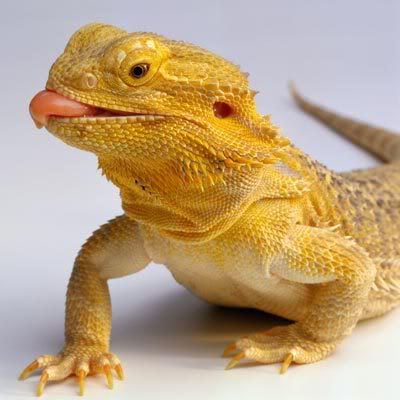Bearded Dragon Medication: A Beginner's Guide to Keeping Your Pet Healthy
Bearded Dragon Medication: Everything You Need to Know

Keeping your bearded dragon healthy is essential for their long-term wellbeing. However, as a beginner, you may be unsure of how to properly care for your pet when they get sick. In this article, we’ll cover everything you need to know about bearded dragon medication, including common health problems, types of medication, and how to administer it.
The Most Common Health Problems in Bearded Dragons
Before discussing medication, it’s important to understand what health issues you may face with your bearded dragon. The most common health problems include:
- Metabolic Bone Disease
- Parasites
- Respiratory Infections
- Mouth Rot
- Impaction

If you notice any symptoms of these health problems, such as lethargy, lack of appetite, or abnormal behavior, you should take your bearded dragon to the vet immediately.
Types of Bearded Dragon Medication
Once your bearded dragon has been diagnosed with a health problem, your vet may prescribe medication to treat the issue. There are several types of medication commonly used for bearded dragons, including:
Antibiotics
Antibiotics are commonly used to treat bacterial infections in bearded dragons. Your vet may prescribe oral antibiotics, such as Baytril, or topical antibiotics, such as Neosporin or Betadine. It’s important to follow your vet’s instructions for administering antibiotics to ensure proper dosage and administration.
Antiparasitic Medication

If your bearded dragon has parasites, such as mites or worms, your vet may prescribe antiparasitic medication to treat the issue. There are several types of antiparasitic medication available, such as Ivermectin or Fenbendazole.
Calcium Supplements

Calcium supplements are commonly used to treat metabolic bone disease in bearded dragons. Your vet may prescribe a calcium supplement, such as ReptiCalcium, to ensure your bearded dragon is getting enough calcium in their diet.
How to Administer Bearded Dragon Medication
Administering medication to your bearded dragon can be challenging, but it’s important to ensure they are getting the proper dosage and administration. Depending on the type of medication, you may need to:
Administer Oral Medication
If your bearded dragon needs to take oral medication, you can use a syringe or a dropper to administer it directly into their mouth. It’s important to place the medication into the back of their throat to ensure they swallow it properly. You can also mix medication into their food, such as baby food or canned pumpkin, to ensure they ingest it.
Administer Topical Medication

If your bearded dragon needs to have topical medication applied, such as a cream or ointment, you can apply it directly to the affected area. It’s important to follow your vet’s instructions for how often to administer the medication and how much to use.
Conclusion
As a responsible pet owner, it’s important to ensure your bearded dragon is healthy and well-cared for. If your pet develops a health problem, be sure to take them to the vet to receive the proper diagnosis and medication. With the right medication and administration, your bearded dragon will be on the road to recovery in no time!
